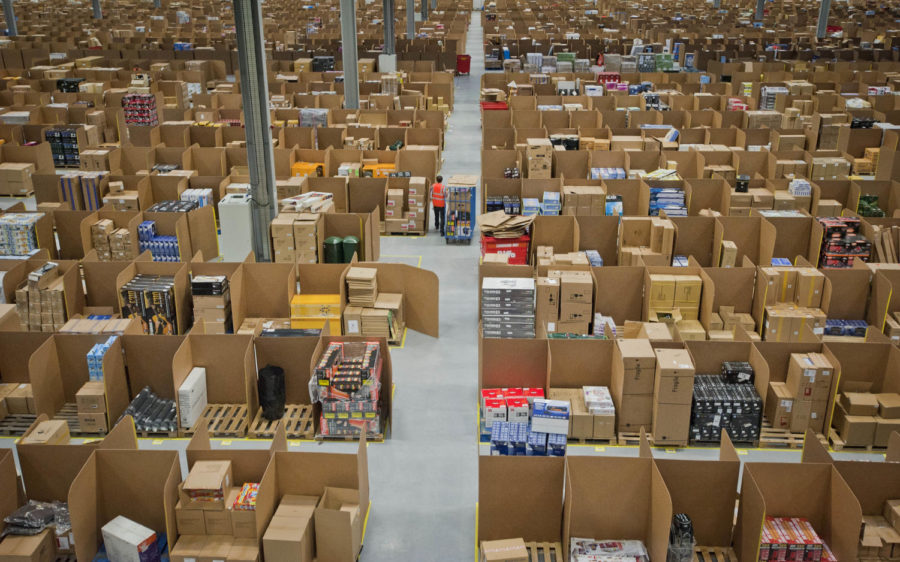Living In Excess
Amazon’s New “Fulfillment Center” Via : Scottish Gov.
We all live in material fortune, and all goods must be produced. Around the US, and many other places, a lifestyle of excess and carelessness is societally paramount. What falls by the wayside is our acknowledgment of the means by which all we own and buy is created and ends up with us. This overindulgence is something we should all learn about and reflect on in light of the harm our ignorance causes.
Exploited workers are the most often heard point of this topic. Cases of exploited workers are not exclusive to countries outside the United States. Samar Ahmed writes at Harvard International Review on how the US has long criticized other countries, especially ones like China for their use of prison labor. At the same time, the US indulges in similarly exploitative labor at minimal costs through prisoners, often in especially medically endangering jobs.
Clothes are a huge market anywhere, and in the US it is as common as ever to buy clothes often and either stockpile high or dispose of them promptly. “Fashionova has ‘perfected fast fashion’,” according to an article by Natalie Kitroeff in The New York Times. Also according to The New York Times LA is full of sweatshops paying people off the books and as little as possible. “factories, which are hired by middlemen to produce garments for fashion brands, paid their sewers as little as $2.77 an hour, according to a person familiar with the investigation.” Not even overseas the over-indulgent American lifestyle creates these outlets for exploitation.
We’ve all heard of the egregious waste Americans produce per capita, and its mention and acknowledgment have made seemingly no impact on the trend. According to the US Environmental Protection Agency, “Per capita, MSW (Municipal Solid Waste) generation increased from 4.5 pounds per person per day in 2017 to 4.9 pounds per person per day in 2018.” Although waste management is progressing every day Americans are still by far overstepping their necessities.
There is more to this than the environment. We can completely ignore such and still we in the US as a factor of living and existing as an average citizen are more than likely to contribute to unethical practices around the world. Even American-made products may and often do source their materials unethically. Diving into this subject can give us more insight into where to send out money and who specifically we should be wary of. Not only that but our consumption of goods could likely be reviewed and highly minimized with little and possible positive impact on happiness and life satisfaction.
According to an article in Psychology Today by Mark Tavers, a study in 2005 by Kirk Brown of the University of Rochester found that in a study group, those who were self-identifying as voluntary simplifiers exhibited more positive emotion and well-being than other participants. In the same article Tavers writes, “Among the studies that included a qualitative (i.e., interview) component, more than 85 percent found a link between voluntary simplicity and well-being.”
Finding ethically sourced products is becoming more and more doable, and limiting your own consumption is something you need nothing but self-control to begin. To begin or even just check out a more mindful direction in your own consumption, “Understanding Ethically Sourced Products.” By Thiri Zaw Yazawa is a great place to start. Not only can you be a part of a productive change, but even benefit your individual mental health through mindful consumption.
Your donation will support the student journalists of Ames High School, and Iowa needs student journalists. Your contribution will allow us to cover our annual website hosting costs.

All Articles posted are representative of only a moment of Bennett's opinions as a highschooler, likely to change at any given time.



























